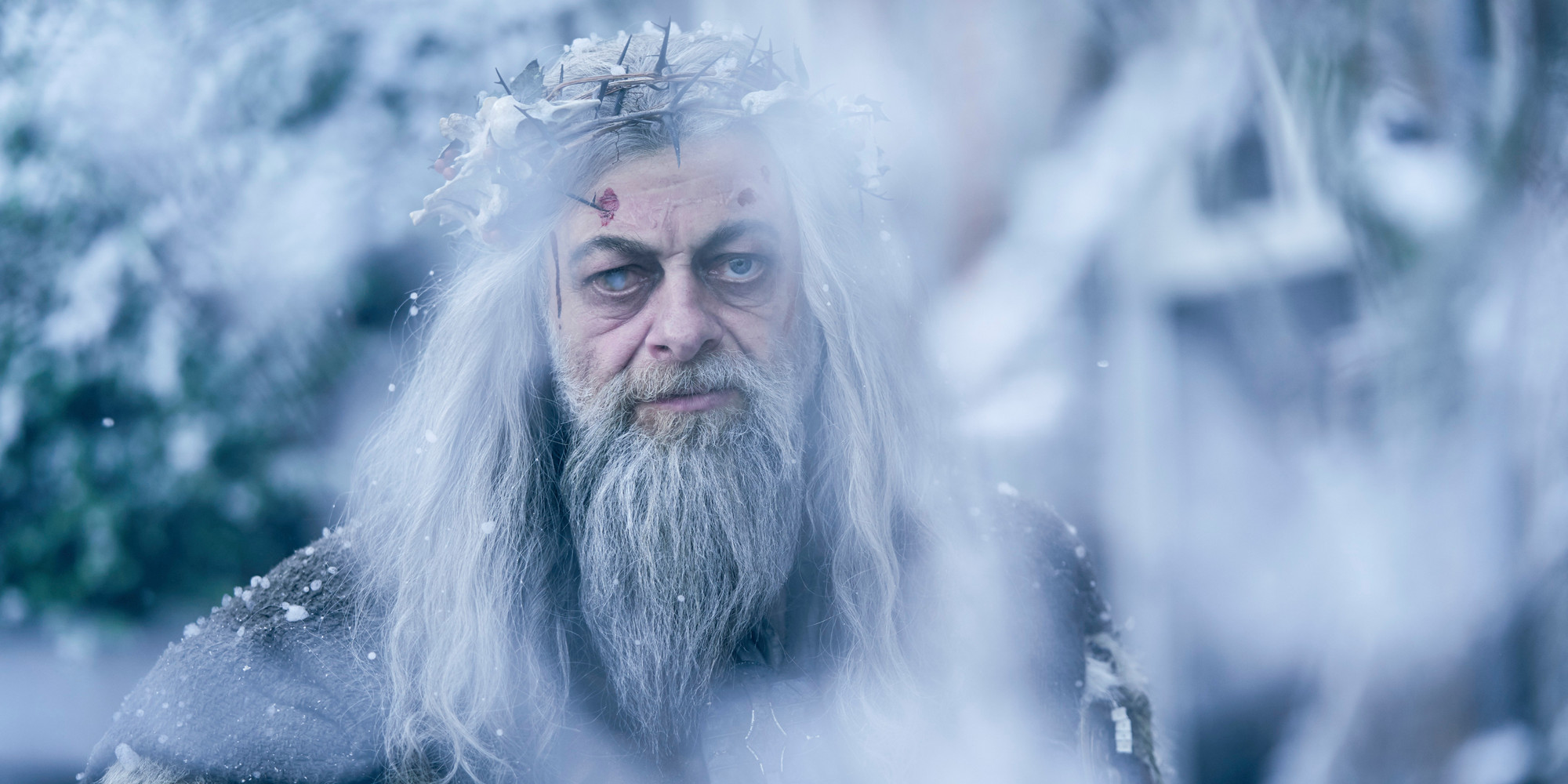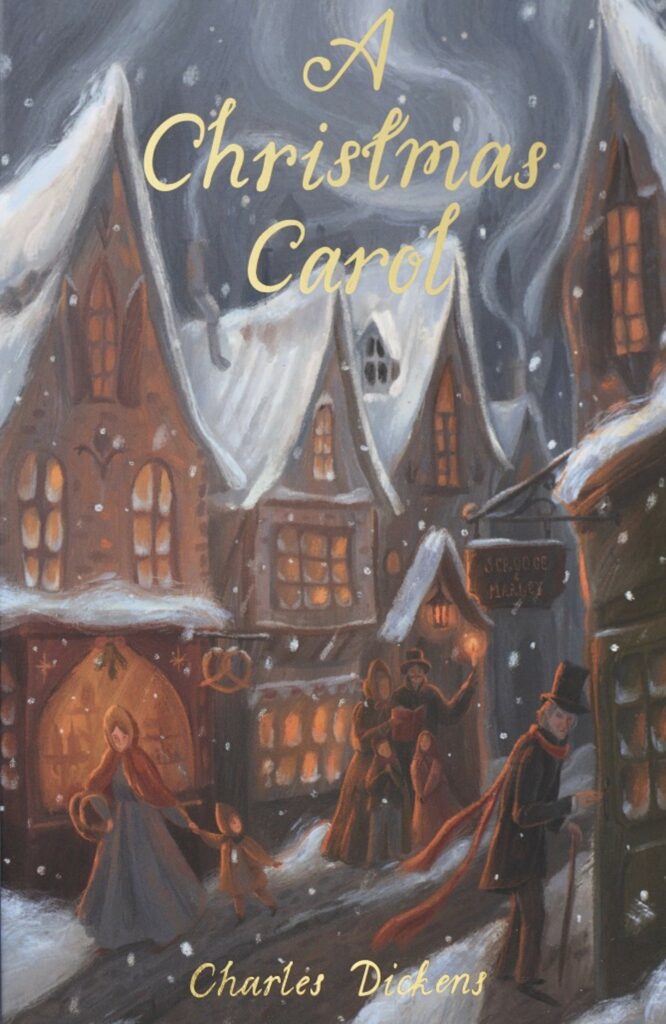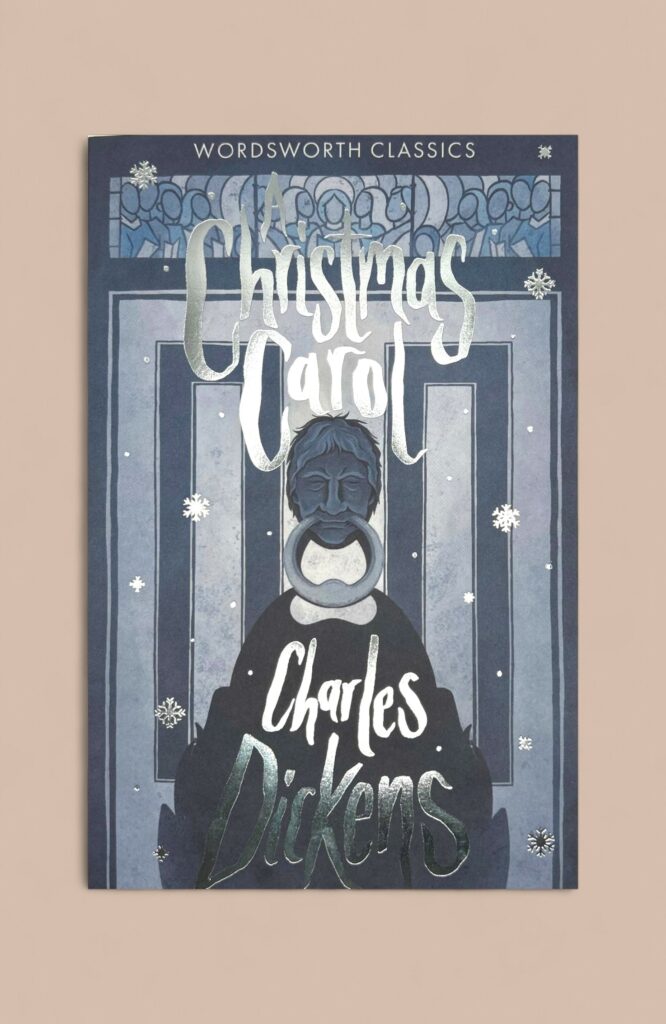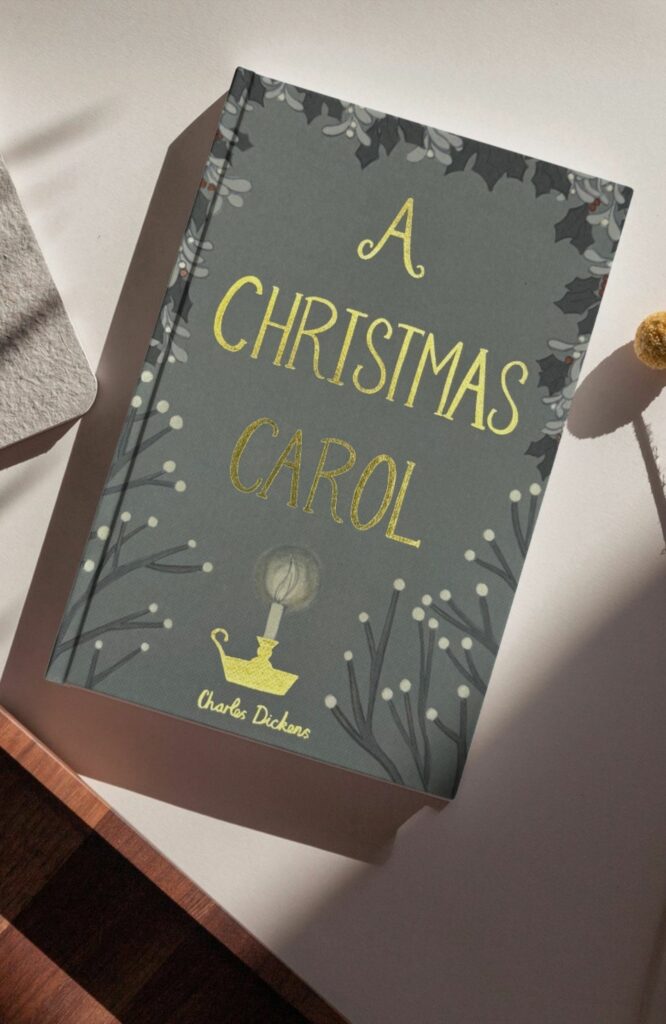
Stephen Carver reviews A Christmas Carol
The new BBC adaptation of a Christmas Carol concluded last night – Stephen Carver reviews it for us.
Well, here we are again. With the festive season comes a slew of costume dramas and literary adaptations from the BBC, most prominent among them new versions of A Christmas Carol and Dracula, hot on the heels of The War of the Worlds. This winter, dark Victorian fantasy rules, which may be a sign of the times in the latter two cases, but not Dickens. Every year, pretty much, there is a new version of A Christmas Carol, the most ubiquitous Christmas story ever imagined. This tidy little gothic fable of redemption and rebirth, originally written to offset the disappointing sales of Martin Chuzzlewit, has been adapted in different mediums more times now than all of Dickens’ other works put together. And like a 1970s Christmas single, we know it off by heart.
The challenge with any adaptation of A Christmas Carol then, must be how, in the words of Ezra Pound, to ‘make it new’, while at the same time retaining that cosy familiarity. Not that every production does this. If you were to revisit, say, the 1984 CBS Christmas Carol with George. C. Scott as Scrooge, the 1999 Hallmark version starring Patrick Stewart, or even that weird Disney CGI one with Jim Carey, you’d note that they all stay very loyal to the original text of 1843, while obviously owing a debt of influence to the 1951 British film Scrooge, and the great Alistair Sim’s interpretation of the title role. Even The Muppet Christmas Carol (1992) stays close to source, with Michael Caine’s Scrooge largely ignoring Paul Williams’ songs and playing it completely straight. Not so the 2019 miniseries which aired this week, written by Stephen Knight and co-produced by Scott Free Productions (Ridley Scott), Hardy Son and Baker (Tom Hardy), and FX (Disney), the team behind Peaky Blinders and Taboo, both memorable historical dramas with a lot more edge. From the opening scene, in which a young man urinates on the grave of Jacob Marley while snarling ‘Skinflint bastard’, it is clear that Knight intends to take this well-worn classic out of a whole new door, in the most radical reimagining since Richard Donner’s Scrooged (1988), starring Bill Murray.
As soon as the first episode began broadcasting on December 22, Twitter lit up with angry complaints, the common theme being that the new drama wasn’t doing the book, a charge also recently levelled at the BBC’s new adaptation of The War of the Worlds written by Peter Harness. Clearly, A Christmas Carol is the property of the nation; mess with it at your peril. But, by the same token, why keep doing the book? Why not shake it up a bit, and explore other characters while retaining the central theme? This is what Knight is going for, and by and large he’s succeeded.
For the first thirty minutes or so of Part One, there was little correspondence between Dickens’ story and Knight’s, aside from the characters of Ebenezer Scrooge and the long-suffering Bob Cratchit, played impeccably by Guy Pearce and Joe Alwyn. The setup is the same, and the early-Victorian mise-en-scène is, as we expect of the BBC, perfect, with some beautifully framed shots somewhere between a vintage Christmas card and the bleak London illustrations of Gustave Doré. In place of the familiar first act, Scrooge instead talks sadly to the empty chair where Jacob Marley isn’t, and monologues at length to the rather bemused Cratchit about Christmas and the human condition, a brutal and Manichean philosophy that mocks the ‘human beast’ for pretending to be decent for one day a year, celebrating the birth of a saviour Scrooge does not believe in. He even drops the F-bomb, which certainly never happened in Dickens, although it was a perfectly common expletive in 1843. Twitter went mad, and the next morning the papers were full of the controversy, the gist being that the first episode had hugely divided viewer opinion, which was no doubt always the intention. Everything is so polarised nowadays, after all.
The Cratchits are similarly rewritten. They are now a mixed-race family, Vinette Robinson’s Mary recalling the inspired casting of Sophie Okonedo as Nancy in the 2007 BBC version of Oliver Twist (starring Tom Hardy as Bill Sikes). In an obvious nod to the present day, they are just about managing, Bob explaining to Scrooge in an oddly frank exchange that he is aware of the ‘narrowness of his situation’ in life as the father of two children, one of whom is sick and requires expensive treatment, in a period of high unemployment. He is trapped in a hopeless cycle of working poverty. His wife, meanwhile, has a secret…
At the same time, Knight develops a fantastic backstory involving the corpse of Jacob Marley, apparently reanimated by urine and eager to repent and get out of Purgatory, an infernal, industrial space that wouldn’t look out of place in an early David Lynch movie. Marley’s soul, apparently, is linked to that of his old business partner in a kind of joint liability, and in order for him to be redeemed, he must also redeem Scrooge. This is explained to him by Andy Serkis’ intense Ghost of Christmas Past, who is burning memories in a vast, dark and snowy field of Christmas trees. Serkis’ presence is, as ever, somewhat overpowering: eerily underlit, wild-haired and blind in one eye, he intones like some fallen god, with just the hint of a Dublin accent. Stephen Graham’s rather cheery Cockney Marley thus begins the rehabilitation haunting of Ebenezer Scrooge, although his hopes are not high.
From this point on, Knight’s narrative and the original dovetail and we begin to hear the more familiar dialogue: ‘Are there no prisons? And the Union workhouses, are they still in operation?’ Scrooge sees Marley’s face on the doorknocker, and off we go.
Graham’s Marley is more of a zombie than a ghost, more material, less scary, like the revenants of American Horror Story. In a discordant scene, the device from Dickens’ novella – ‘the phantom taking off the bandage round its head … its lower jaw dropped down upon its breast’ – becomes the graphic image of Marley’s jawless face, tongue lolling horribly, like something out of The Walking Dead. This moment of horror felt at odds with the established gothic sensibility of the piece and was presumably added for the shock value.
In another contemporary allegory, Scrooge flings his front door open to escape and finds himself in the middle of an industrial accident: a burning factory his company had owned, which went up due to their managed neglect, although they were, as Marley reminds him, legally exonerated. (Another example occurs in the second part, this time a mine which collapses after inferior timber was used to save money.) In evoking the Grenfell Tower tragedy, and all that it says about the current gulf between wealth and poverty in modern Britain, Knight’s device is laid bare. Politically, I applaud it, but as a writer, I am not so sure. The connection is too blatant somehow, too obvious, just as it is with the Cratchits, recalling that old creative-writing adage that it is always better to show than tell. But that said, it could equally be argued that Knight is just doing what Dickens did, when he attacked Malthusian and Utilitarian economics; Knight has just updated the references.
Similarly, do we need a Marley backstory? His function in the original text is to be damned. His message is that it’s too late for him, but that Scrooge might save himself. Linking his potential salvation to Scrooge’s makes him a character of near-equal importance, which he isn’t, and lessens the horror of his situation and thus Scrooge’s potential fate. Also, is a Tim Burton-like depiction of the Afterlife necessary? Anything we imagine will probably be more disturbing. I was reminded of ‘Director’s Cuts’, in which classic films have scenes restored from the cutting room floor which add extra time and more introductory detail, all of which is completely irrelevant to the main plotline and already much more effective by implication. So it is with the 2019 Marley. As Kurt Vonnegut famously advised, when telling a story, ‘Start as close to the end as possible’. Knight has done the exact opposite. Having established Scrooge’s character, on the other hand, Dickens had introduced Marley’s ghost by Page 10, because he was aware that he was writing a fairy tale, in which the power of the moral message comes from brevity and simple delivery. Knight is overcomplicating.
This drama is much more a character study of Scrooge, but not the Scrooge of Dickens. Guy Pearce can’t help but make him quite dapper for a start, while in Part Two we see childhood of violent and sexual abuse at the hands of his bankrupt father and a corrupt schoolmaster. He is, as his nephew observes, a man in pain. This is shown by the Ghost of Christmas Past manifest as Ali Baba, the escapist hero of the traumatised child Scrooge, the ride in the snow on camels turning the whole thing into a kind of magical realist Jumanji. We are then shown Scrooge and Marley as disaster capitalists (something as relevant in Dickens’ day as our own), and then Scrooge torturing Mary Cratchit over money to save her son, in a spiteful and threatening social experiment that hints at rape (which it then backs away in the concluding episode as a bridge too far, even for Scrooge). Some will no doubt see this as audacious rewriting, but I thought the second part quite literally lost the plot. It was an interesting story, but it wasn’t A Christmas Carol.
But any digressive subplots and the occasional cheap shock were redeemed by the power of the final episode, and an incredible performance from Vinette Robinson, whose Mary Cratchit curses Scrooge and turns out to be the catalyst for his haunting. And though Scrooge repents, as we know he must, moved, like the original by the plight of Tiny Tim, his circle closed by the same young man pissing on his grave, Mary does not forgive him, and nobody says ‘God bless us, every one’. There is closure, but for all the supernatural elements, there is something rawer and more realistic about it than the original, while maintaining the same moral message. As Scrooge tells the final ghost, as he sits down upon his defiled grave, Bravo.
This hyper-real, 21st-century version of A Christmas Carol will undoubtedly divide critical and public opinion, and it probably won’t become one of the popular re-runs in years to come. It could have been shorter, and subtler at times, but it looked great and the cast was amazing, and as a ‘re-imagining’, it paid its respects to the original. In the end, it hit the target more often than not, and Scrooge’s journey was as gruelling for the viewer as it was for him, the parallels with the indifference to human suffering of the current billionaire class positively hammered home.
Would Dickens have approved? Probably not. He hated adaptations of his work at the best of times, and those were the ones without bodily functions and swearing. But Dickens lovers should give it a chance. OK, it isn’t the book, but haven’t we seen that dramatised enough now? I think it will be a grower: a genuinely different take on the story, with just as much of social conscience as the original; a bit over the top, but very watchable, reminding us, at the same time, that we are never that far away from our Victorian ancestors in this country.
Books associated with this article

A Christmas Carol
Charles Dickens

A Christmas Carol
Charles Dickens
